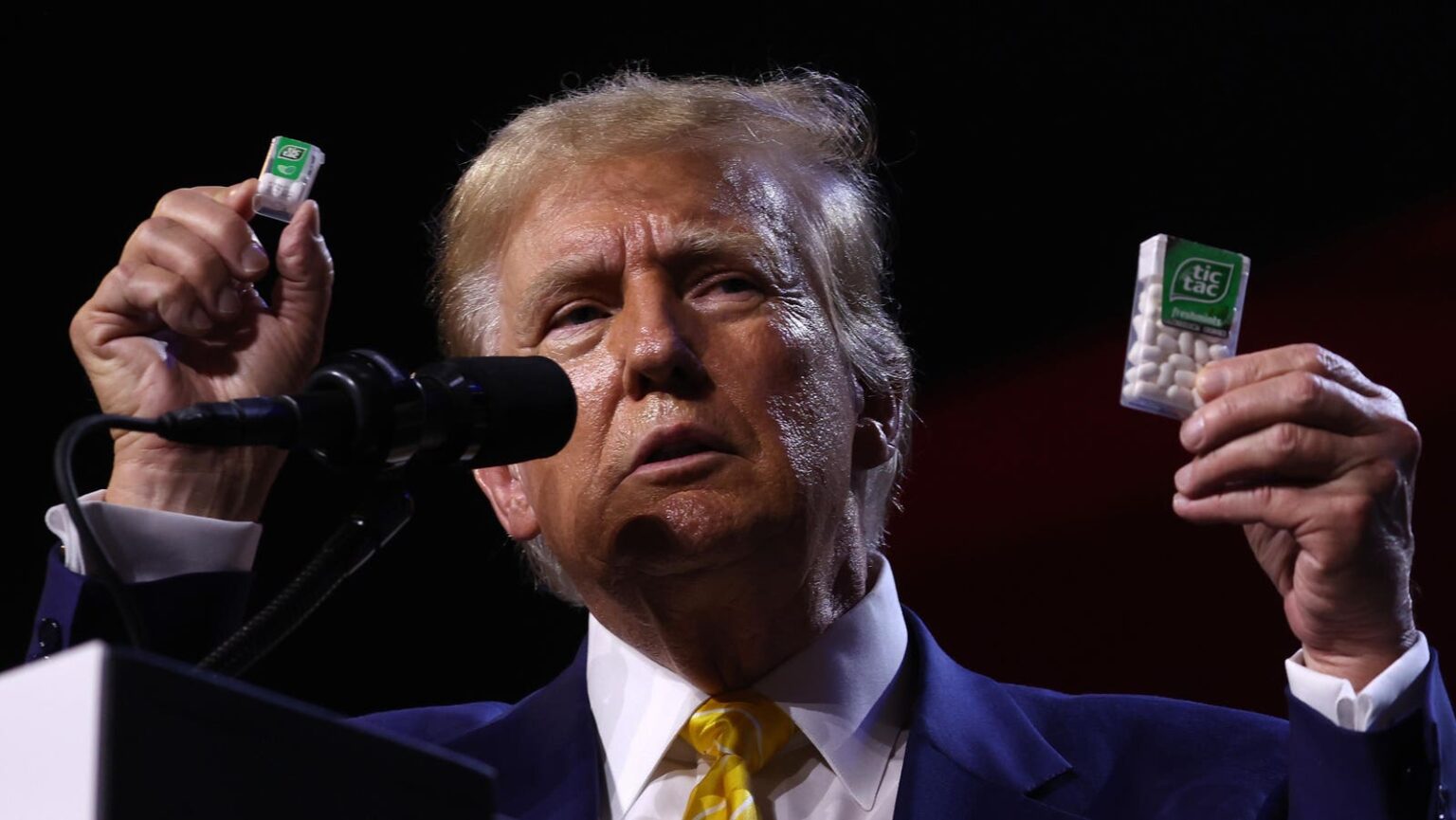Topline
A majority of economists believe former President Donald Trump’s proposed economic policies would lead to higher inflation than those of Vice President Kamala Harris, according to a survey published Monday by the Wall Street Journal, findings which go against a far stronger inflation record under Trump than Joe Biden.
Former President Donald Trump holds up Tic Tacs as he speaks about inflation in June.
Getty ImagesKey Facts
Some 68% of economists said inflation would be higher under Trump’s economic proposals than Harris, according to the Journal’s survey of 50 economists conducted Oct. 4-8.
That compares to 12% who believed Harris inflation would be worse and 20% who didn’t anticipate a noticeable gap.
It’s a wider gap than was found in a similar poll conducted July 5-9 before President Joe Biden exited the race, when 56% of economists said inflation would be worse under Trump than Biden compared to 16% for the opposite.
Perhaps Trump’s most notable potentially inflationary policy put forth on the campaign trail is a 60% tariff, or import tax, on Chinese goods and a 10% tariff on other imports.
Contra
American voters are far more split on who would be a better shepherd of inflation. A Financial Times/University of Michigan Ross School of Business survey last month found 44% of voters trust Harris and 43% Trump more to lower everyday costs, while a Data for Progress poll revealed a 46% to 45% split in Trump’s favor to handle inflation. And inflation was far lighter in the U.S. during the Trump administration than under Biden and Harris. The consumer price index, the most commonly cited inflation metric as it tracks price changes in goods and services everyday Americans purchase, rose 7.8% during Trump’s presidency (1.9% annualized inflation) and 19.9% during the first 44 months of Biden’s (5.4% inflation).
Key Background
The stark inflation gap is not just influenced by who was in the oval office, as Trump benefited from downward inflationary pressures from 2020’s COVID-19 outbreak and Biden inflation was worsened by a global inflation outbreak stemming partially from the economy’s Covid recovery, though critics point to stimulus programs under Biden as inflationary. Inflation is considered one of the most important voter issues heading into next month’s presidential election. Annual consumer price index inflation peaked at a 41-year-high of 9.1% in mid-2022 but has moderated significantly, hitting a 3.5-year low in September of 2.4%. Economists find both Trump’s economic plans, which include corporate tax cuts and an elimination of Social Security income taxes, and Harris’, which include $6,000 child tax credits and $25,000 in down payment assistance for first-time home buyers, would increase the federal deficit, which could further drive up inflation. The University of Pennsylvania’s Wharton School of Business found Trump’s proposals would drive up the federal deficit by $4.1 trillion compared to $2 trillion by Harris plans.
Further Reading
Read the full article here


